5 Gallon Container Vegetable Gardening
A few weeks back, we wrote an article on the blog about growing vegetables and flowers in 5 gallon buckets using our new DIY 5 gallon bucket planter boxes.
And have we ever been bombarded with questions on how to grow plants in 5 gallon buckets!
With more people than ever looking to grow more of their own food this year, growing in 5 gallon buckets is a great way to go. Especially if you are short on growing space, time – or both!
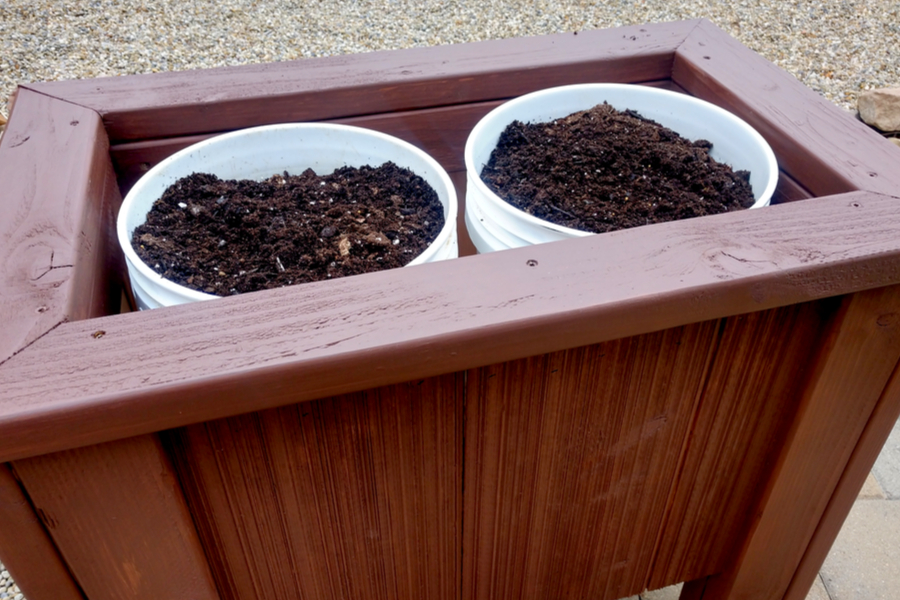
Even better, growing in buckets virtually eliminates weeding. And best of all, "cleaning" up the garden at the end of the season requires simply dumping your bucket in the compost bin!
So with all of the recent interest, here is a look at the secrets to success to grow in 5 gallon buckets.
Growing In 5 Gallon Buckets
The 5 gallon bucket is actually a perfect vessel for growing vegetables and annuals. At 14 inches high, and 12″ in diameter, it allows plenty of room for deep, wide roots.
And compared to the cost of expensive containers, it's hard to beat the $3 to $4 price tag of a 5 gallon bucket. Not to mention, they can often even be found for free. They can also be turned into inexpensive, attractive planter boxes with ease!! (See: Homemade 5 Gallon Bucket Planters)
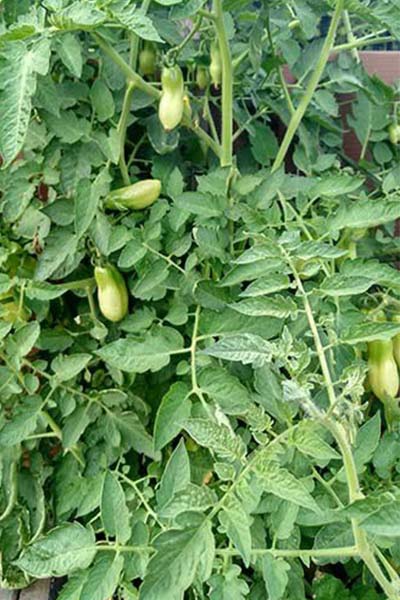
And turning 5 gallon buckets into a planter couldn't be easier. Here is a look at the simple steps to create your own instant bucket garden:
#1 Create Drainage Holes
To grow in 5 gallon buckets, you need to first create a few drainage holes. Nothing will kill a plant faster than plants sitting in water.
For our grow buckets, we create drainage holes in the bottom base, and on the sides of the bottom. This allows excess water to drain off quickly when too much water enters the bucket.
Drilling Holes
To make our holes, we use a 1/2″ drill bit. We start by drilling 4 evenly spaced holes in the base of the bucket.
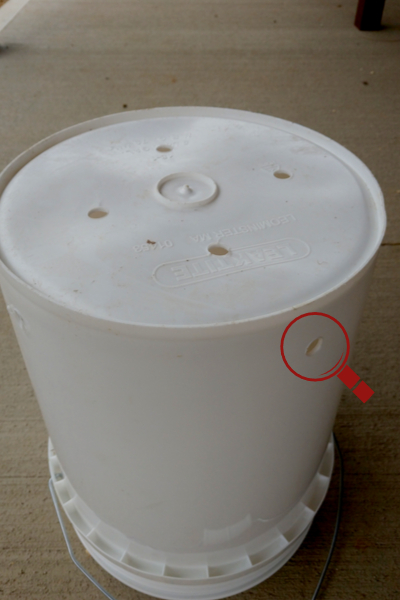
Next, we then drill 4 more holes evenly spaced around the sides at the bottom end of the container. We drill these about (1) one inch up from the bottom.
These holes protect the water from pooling up into the roots during hard rains or excessive watering. Especially if one or more of the bottom holes become plugged.
Adding Drainage Material To The Bottom Of The Bucket
The next step is to add in a few inches of drainage material to the bottom of your bucket. There are two major benefits to this step:
First and foremost, it prevents the bottom drainage holes from becoming plugged. But at the same time, it also helps conserve on the potting soil needed to fill the bucket.
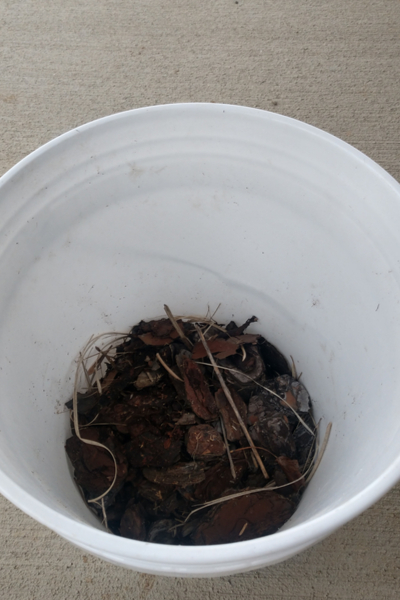
For our drainage material, we always opt for lightweight pine barn or hardwood bark nuggets.
Although rocks or gravel can be used, the bark nuggets keep the bucket from becoming too heavy. In addition, the rough edges of the material provides plenty of channels and space for air and water to flow with ease.
Filling The Buckets With The Right Growing Soil
Once your bucket is drilled and filled with a bit of drainage material, it's time add soil. And the soil you choose to use is critical to your overall growing success!
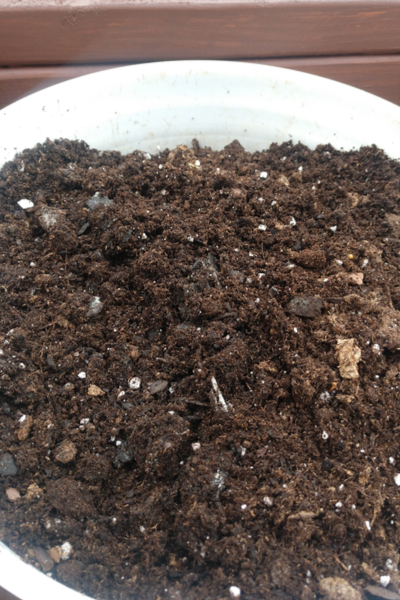
Container soil needs to be lightweight, healthy and fertile. Ordinary top soil or garden soil simply won't work. It is far too heavy, making it hard for plants to absorb nutrients or drain well.
We make our own homemade potting soil from simple organic ingredients. (See : How To Make The Perfect Homemade Potting Soil)
There are also many high quality potting soil mixes on the market that will work well. The key is to make sure they are lightweight and full of nutrients.
Supporting Plants
Finally, the last key to success is to provide support for plants that need it. Large vegetables like tomatoes and peppers need a stake or trellis to keep plants upright.
The stakes can go directly in the buckets, or buckets can be located near a fence or trellis to support plants as they grow.
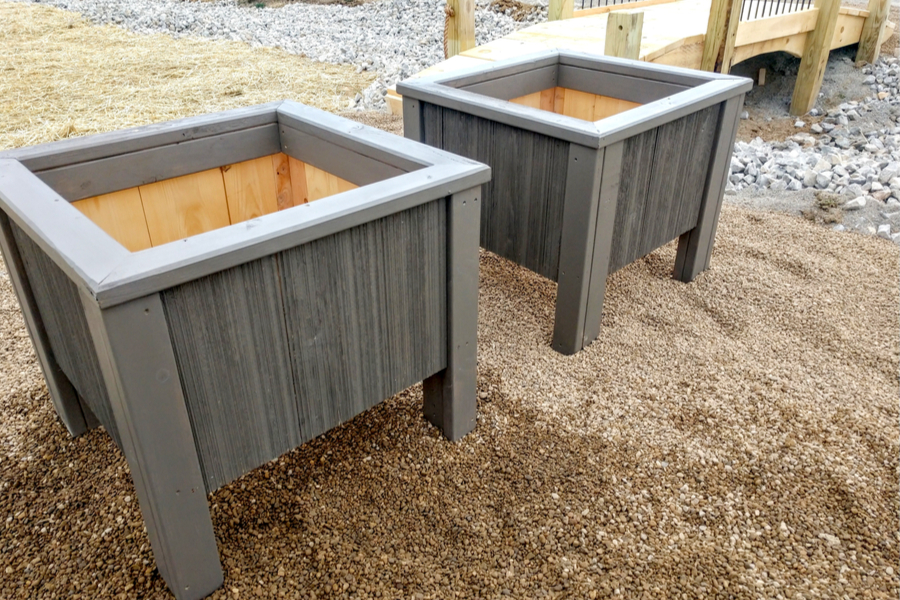
We attach our trellises to our planter boxes. It makes quick work of securing plants. The DIY boxes have been a huge hit on the blog this year – they can be built with a few 2 x 4's and make an attractive planter for the 5 gallon buckets. (See : DIY Planter Box Plans)
Here is to growing in 5 gallon buckets! Happy Gardening – Jim and Mary
As always, feel free to email us at thefarm@owgarden.com with comments, questions, or to simply say hello! To receive our 3 Home, Garden, Recipe and Simple Life articles each week, sign up for our free email list that is located in the middle of this article. This article may contain affiliate links.


5 Gallon Container Vegetable Gardening
Source: https://oldworldgardenfarms.com/2020/04/23/grow-in-5-gallon-buckets/
Posted by: gonzalezesifer88.blogspot.com

0 Response to "5 Gallon Container Vegetable Gardening"
Post a Comment